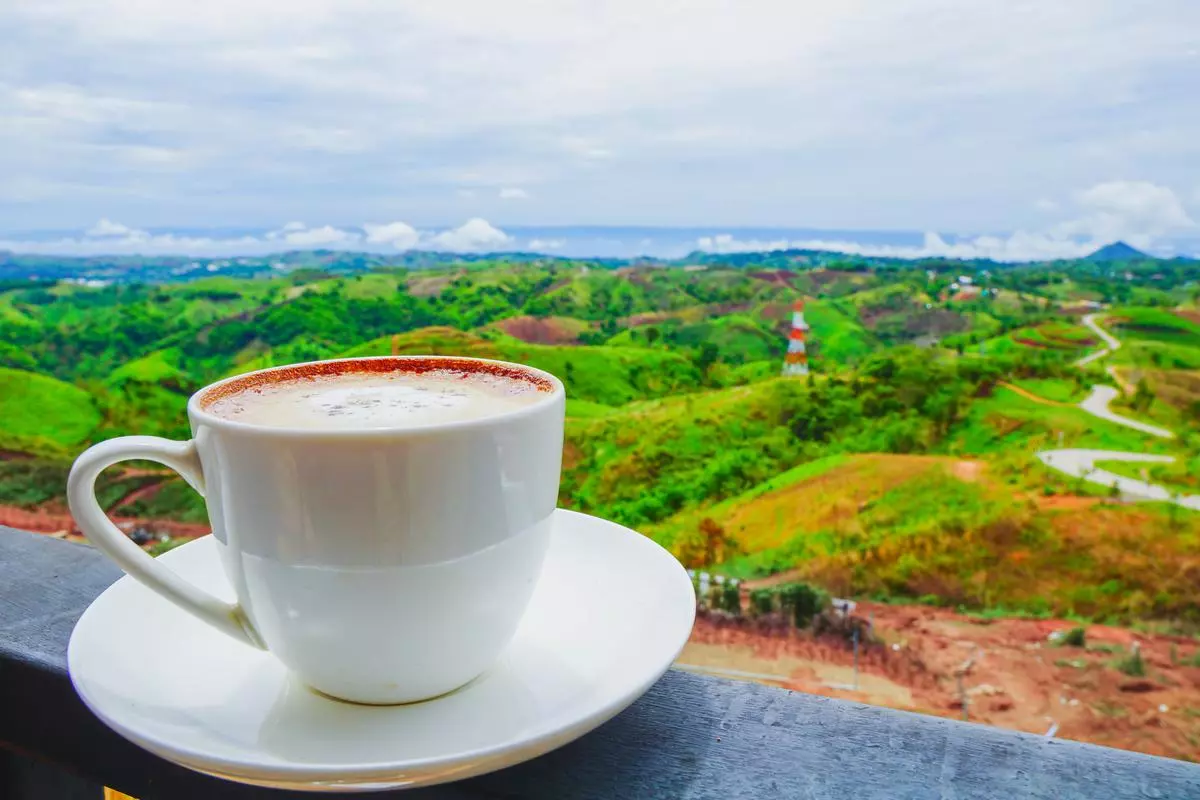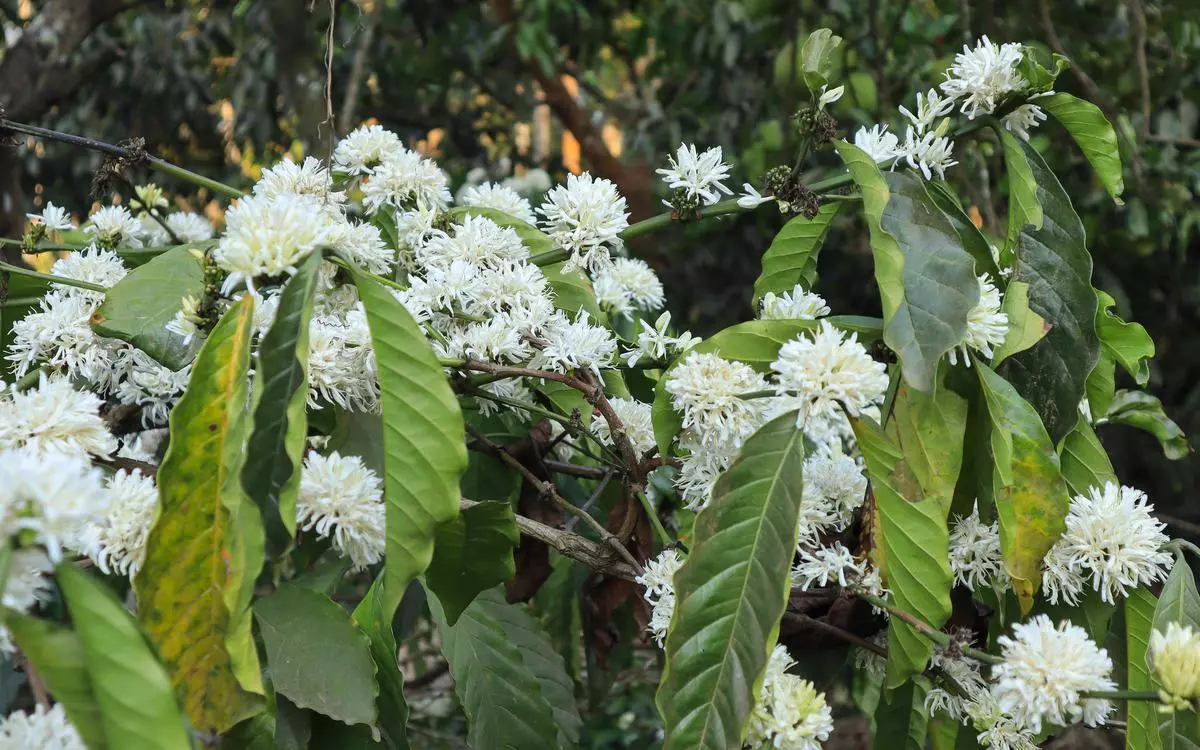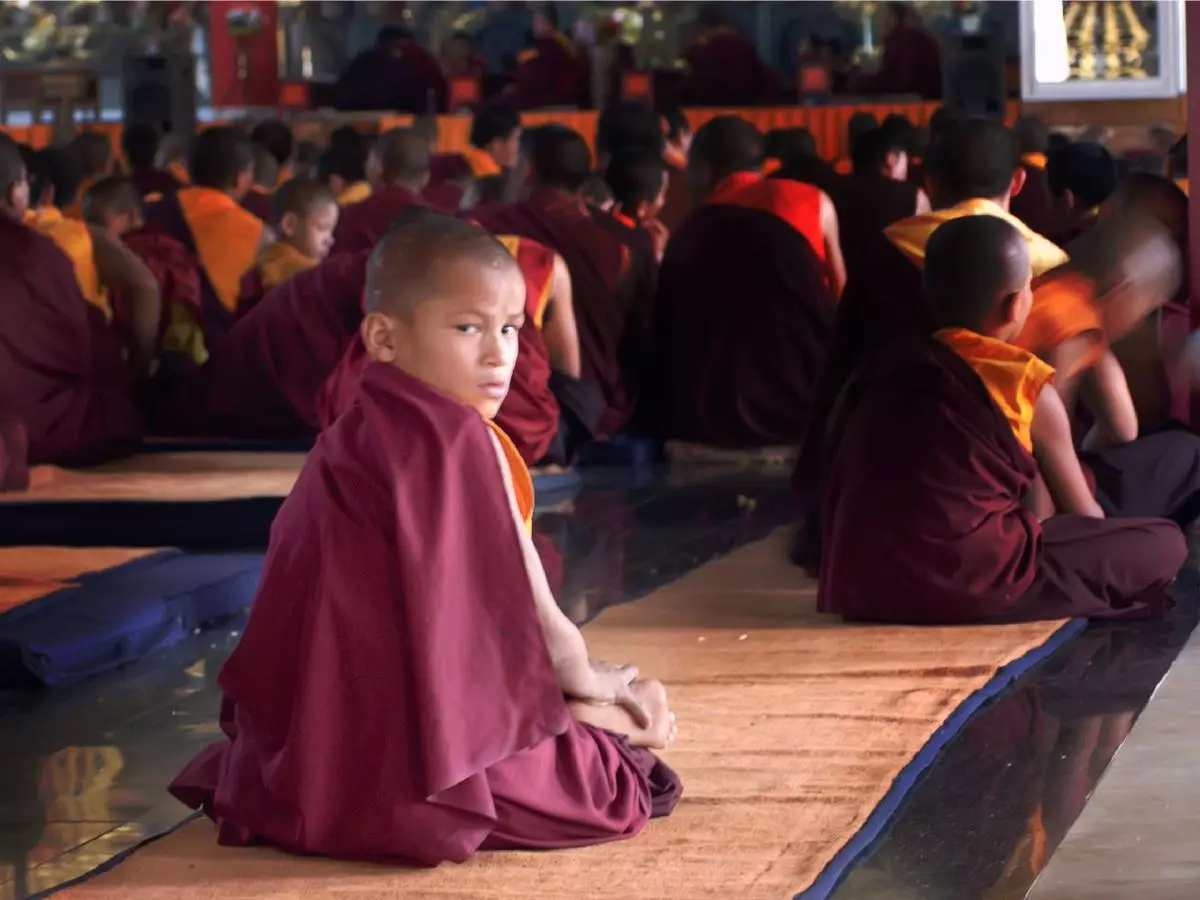Footloose in Kodagu, where the mercury still hovers around 20° Celsius.

While temperatures go up in the rest of south India with the advent of summer, in Karnataka’s Kodagu district the mercury still hovers around 20 degree Celsius. I sip my delicious freshly brewed, locally grown coffee. Coffee is one of the mainstays of the local economy: the rolling plantations stretch over a quarter of the district, not only up and down the hillsides of the Western Ghats, but also in tiny coffee gardens or even as the isolated backyard shrub.
Over 40,000 coffee growers in Kodagu have holdings below 10 hectares. A major portion of the coffee produced in India, both Robusta and Arabica, is grown in Kodagu. With its pretty white flowers and cherry-red berries, the coffee plant has brought prosperity to the district.

Sitting in the garden, I try not to be distracted by the anthuriums, peace lilies, Malabar rhododendron, and splendid roses that grow so well in this emerald-green landscape. I am reading a new translation of the short stories of the feminist writer Kodagina Gowramma by Deepa Bhasthi. Gowramma wrote in the early 20th century and her collection was published posthumously. Bhasthi’s translation has been published by the independent Indian publisher Yoda Press.
Kodagu’s Gowramma
In one of the short stories, a young man dreams about going to England to study further. “When I was a little boy, my neighbour’s son went to England to sit for some exam and came back after touring Europe. Then, the respect the villagers gave him, his car, his new fashionable clothes, the way he walked, the way he spoke, all this made me long to go to England and come back like him…. It was because of this fierce longing to go to England that I did not fail even one year in school. I was the class topper; I was a model student in school.”
Bhasthi, who is from Gowramma’s hometown in Kodagu, has written about her unusual life. On a trip to Kashi as a child, Gowramma had the traumatic experience of getting lost in the city before she was reunited with her family at the police station. As a young woman, Gowramma played tennis, loved swimming, and had independent views. As news of the freedom movement spread, she became deeply influenced by the ideas of Mahatma Gandhi and began wearing khadi. Bhasthi describes how, during Gandhi’s visit to Kodagu in 1934, Gowramma reportedly went on a fast and insisted Gandhi should come to her house. She then gifted all her jewellery to the cause.
Gowramma died tragically young, at 27, in a swimming accident. A photograph of the young writer hangs on the wall of the rural library in Ponnampet, located close to the statue of Mahatma Gandhi that marks his visit to the town.
Kodagu’s libraries
Kodagu’s rural libraries are attractive and child-friendly spaces. Library walls often commemorate Kodagu heroes, such as Field Marshal Kodandera Madappa Cariappa, India’s first Army Chief after Independence, and another legend, General Kodendera Subayya Thimayya. The library walls also have pictures of Karnataka’s distinguished Jnanpith Award-winning writers. And in Hoddur village, a tiny rural community located some distance away from the panchayat headquarters has set up a library of its own in an old anganwadi building. It is called the Savitri Bai Phule Community Library.

In Thithimathi, a tiny village on the outskirts of the Nagarhole forest, the rural library has bright blue benches in its yard. Two schoolboys play chess in a corner. I learn that one of them attends a private school; the other boy is from a tribal community and attends a government school. Here in the village library, it is a small moment of great happiness to see them playing chess together.
No weekend in Kodagu is complete without a few moments of calm in the nearby town of Bylakuppe, which is home to two Tibetan settlements dating back to the 1960s, Lugsung Samdupling and Dickyi Larsoe. The beautiful Namdroling Monastery is also located here. It is lined with prayer wheels and intricate, colourful murals that contrast with the deep red robes of the monks. The monastery reverberates with deep musical chanting, transporting visitors to places not dreamt of in philosophies.
Uma Mahadevan Dasgupta is in the IAS.
source: http://www.frontline.thehindu.in / Frontline / Home> Others> Travel – Diary / by Uma Mahadevan Dasgupta / May 04th, 2023

